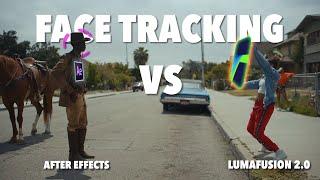
Leonie Smith - A conceptual analysis of impostor syndrome: what is it, and what do, and should, ...
A conceptual analysis of impostor syndrome: what is it, and what do, and should, we want it to be?
What is impostor syndrome? On Katherine Hawley’s account it involves a person holding negative mistaken beliefs or attitudes relating to her own competence and success in an area in which she is actually successful (Hawley 2019). Hawley suggests that an ameliorative concept of impostor syndrome will aim to provide opportunity for reducing non-competence impostor beliefs, in the sufferer. Sarah Paul, in contrast, has argued that we should focus more on “the debilitating emotional and behavioural consequences of such beliefs” than on the doxastic attitudes themselves, as this is where the sufferer experiences real pain (Paul 2019: 227, my italics).
But although often linked, it is at least conceptually possible for non-competence impostor beliefs of the type Hawley is concerned with and the ‘emotional and behavioural’ reactions which Paul is concerned with to come apart. This, as Hawley suggests, leaves open the possibility that, “perhaps
there could be a sufferer from impostor syndrome who believes that she is
skilful and successful, yet still has high levels of anxiety, of a type more appropriate to someone who lacks such beliefs” (Hawley 2019: 208). Hawley does not explore this further (although she and others do discuss the alternative case in which the beliefs are present without related feelings and behaviours), but I am intrigued by this open possibility, and its implications.
The two questions I believe that we need to answer are these: First, is it possible for significant numbers of people to experience the emotional and behavioural reactions commonly associated with impostor syndrome without experiencing non-competence-based impostor beliefs? And second, if they
can, what are the implications of these cases for our taxonomy and treatment of impostor syndrome? Should we understand these cases as
instances of impostor syndrome, or is there something missing from our current understanding of social reality? In this paper I will argue first, that there are
such cases, and second, that failing to recognise them as conceptually distinct is an issue of social justice.
What is impostor syndrome? On Katherine Hawley’s account it involves a person holding negative mistaken beliefs or attitudes relating to her own competence and success in an area in which she is actually successful (Hawley 2019). Hawley suggests that an ameliorative concept of impostor syndrome will aim to provide opportunity for reducing non-competence impostor beliefs, in the sufferer. Sarah Paul, in contrast, has argued that we should focus more on “the debilitating emotional and behavioural consequences of such beliefs” than on the doxastic attitudes themselves, as this is where the sufferer experiences real pain (Paul 2019: 227, my italics).
But although often linked, it is at least conceptually possible for non-competence impostor beliefs of the type Hawley is concerned with and the ‘emotional and behavioural’ reactions which Paul is concerned with to come apart. This, as Hawley suggests, leaves open the possibility that, “perhaps
there could be a sufferer from impostor syndrome who believes that she is
skilful and successful, yet still has high levels of anxiety, of a type more appropriate to someone who lacks such beliefs” (Hawley 2019: 208). Hawley does not explore this further (although she and others do discuss the alternative case in which the beliefs are present without related feelings and behaviours), but I am intrigued by this open possibility, and its implications.
The two questions I believe that we need to answer are these: First, is it possible for significant numbers of people to experience the emotional and behavioural reactions commonly associated with impostor syndrome without experiencing non-competence-based impostor beliefs? And second, if they
can, what are the implications of these cases for our taxonomy and treatment of impostor syndrome? Should we understand these cases as
instances of impostor syndrome, or is there something missing from our current understanding of social reality? In this paper I will argue first, that there are
such cases, and second, that failing to recognise them as conceptually distinct is an issue of social justice.
Тэги:
#Social_ontology #collective_intentionality #social_world #Impostor_syndrome #class #conceptual_analysisКомментарии:
Leonie Smith - A conceptual analysis of impostor syndrome: what is it, and what do, and should, ...
ISOS - International Social Ontology Society
заставка далее и анонс тижи 15.02.2020
Кристина Шкодина
Himoto Centro Rc brushless car
Sufy's Projects
iPhone SE iOS 11 Goldmaster Review!
Nick Ackerman
Regit Used car Static cars advert
RegitCars
Straight/Gay
Tobuscus


























